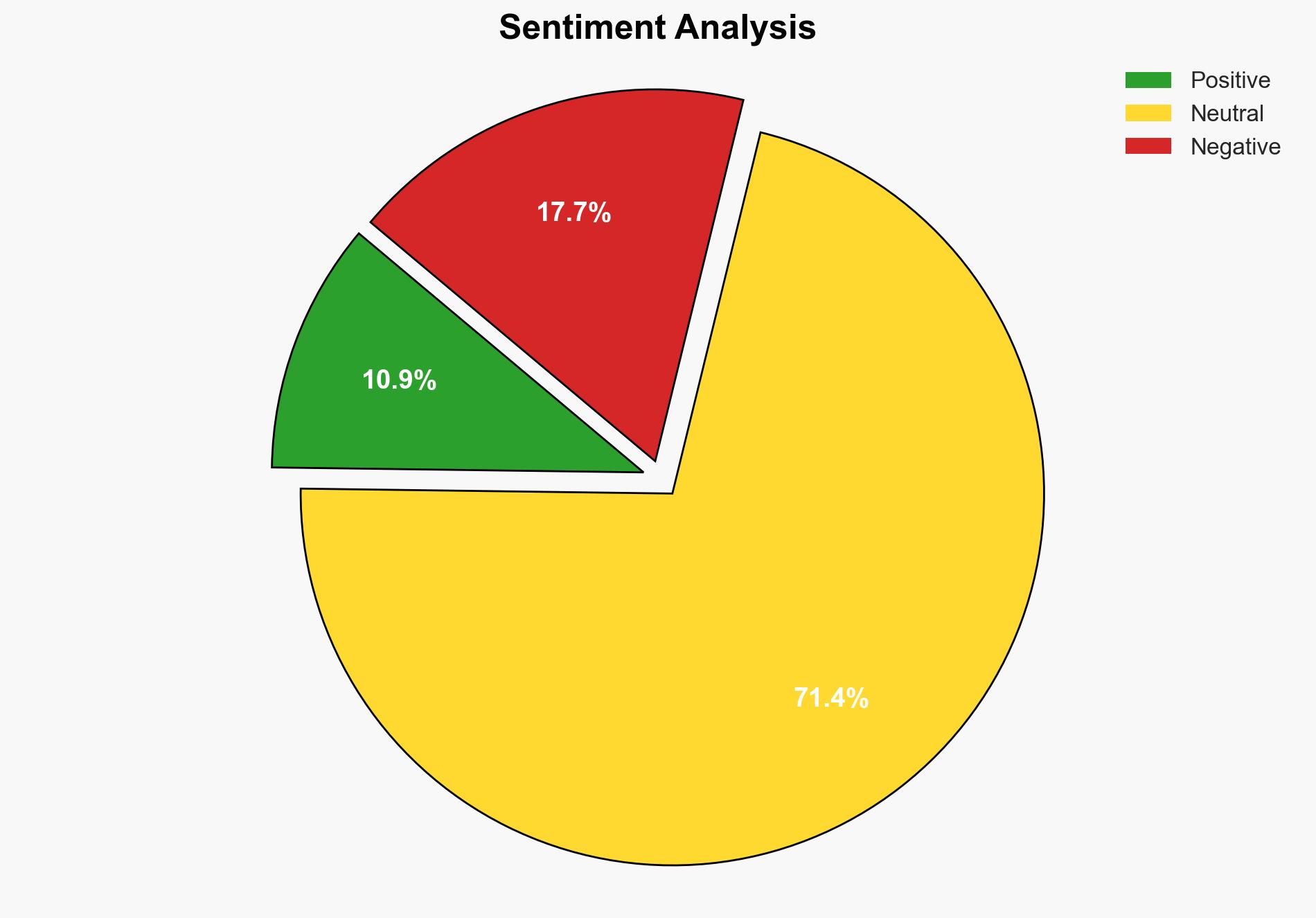‘Tsunami of antisemitism’ on German campuses report finds – DW (English)
Published on: 2025-03-02
Intelligence Report: ‘Tsunami of antisemitism’ on German campuses report finds – DW (English)
1. BLUF (Bottom Line Up Front)
The report highlights a significant increase in antisemitic incidents on German university campuses, creating a climate of fear among Jewish students. Key findings indicate a rise in antisemitic statements, intimidation, and physical attacks. The report calls for immediate policy changes, including consistent prosecution of antisemitic crimes and compulsory training on modern forms of antisemitism. These measures aim to improve the safety and well-being of Jewish students and ensure compliance with educational standards.
2. Detailed Analysis
The following structured analytic techniques have been applied for this analysis:
SWOT Analysis
Strengths: The report provides comprehensive data and insights, serving as a valuable resource for stakeholders addressing antisemitism.
Weaknesses: Limited research on the issue may hinder comprehensive understanding and response strategies.
Opportunities: Implementation of recommended policy changes could significantly reduce antisemitic incidents.
Threats: Continued antisemitic activities may lead to increased tension and instability within academic institutions.
Cross-Impact Matrix
Antisemitic incidents on campuses may influence broader societal attitudes, potentially increasing polarization and affecting Germany’s international reputation. The situation may also impact relations with neighboring countries, particularly those with significant Jewish communities.
Scenario Generation
Best-Case Scenario: Successful implementation of recommended policies leads to a significant reduction in antisemitic incidents, fostering a safer environment for Jewish students.
Worst-Case Scenario: Failure to address the issue results in escalating violence and further alienation of Jewish communities.
Most Likely Scenario: Partial implementation of policies leads to moderate improvements, but underlying issues persist.
3. Implications and Strategic Risks
The rise in antisemitic incidents poses significant risks to national security and regional stability. It may lead to increased social unrest and damage Germany’s international standing. Economic interests could also be affected if educational institutions face reputational damage, impacting student enrollment and funding.
4. Recommendations and Outlook
Recommendations:
- Implement consistent prosecution of antisemitic crimes to deter future incidents.
- Introduce compulsory training on modern forms of antisemitism for university staff and students.
- Establish clear points of contact for Jewish students to report incidents and seek support.
- Incorporate the International Holocaust Remembrance Alliance’s definition of antisemitism into university constitutions.
Outlook:
Best-Case: Comprehensive policy changes lead to a significant decrease in antisemitic incidents and improved campus safety.
Worst-Case: Inaction or insufficient measures result in continued hostility and potential escalation of violence.
Most Likely: Gradual improvements occur, but ongoing vigilance and adaptation of policies are required to address persistent challenges.
5. Key Individuals and Entities
The report mentions significant individuals and organizations, including March Lahav, Shapira, Hanna Veiler, and Remko Leemhuis. Key entities include the German Union of Jewish Students (JSUD) and the American Jewish Committee Berlin (AJC).





